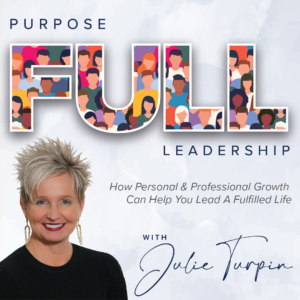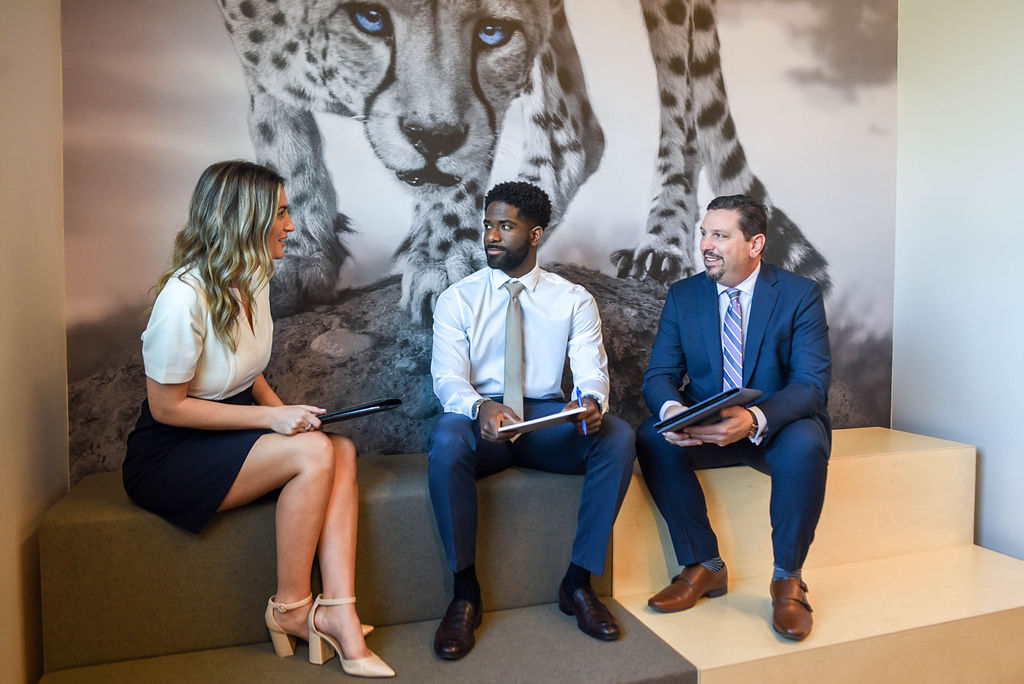Thrive in ’25
by Julie Turpin, Chief People Officer at Brown & Brown Insurance
When was the last time you felt like you were thriving? Not just getting by, but truly flourishing? Is it hard to pinpoint that moment? This question is worth asking as you plan the year ahead.
To thrive is to grow and succeed, go beyond just surviving, and reach full potential and fulfillment. Think of a plant in full bloom. It is a picture of vitality and beauty, standing tall and robust. Not every plant thrives, as it depends on the care and conditions it receives—rich soil, proper sunlight and adequate water. We are no different. To thrive, we require care and resources.
Last year, my answer to the question “Who do I want to be?” was ‘Be More in ’24.’ I focused on promoting a culture of open communication, fostering holistic development among our rising leaders, and asking, “Are we truly delivering on what our people need today?” In other words, are we helping our people thrive?
This year, as we continue to build structures and provide resources that empower my teammates at Brown & Brown to reach their full potential, I am also committed to a deeper personal exploration of what it means to Thrive in ’25. Thriving isn’t just about external support; it’s about recognizing our own responsibility to cultivate the care and environment we need to grow. This accountability mindset will guide how I approach my personal and professional goals this year.
Are your daily habits supporting or stifling your growth?
Almost half of our everyday actions are performed out of habit. While some habits offer comfort, consistency and efficiency, they can also keep us stuck in patterns that don’t serve our highest potential. Too often, we operate on autopilot because this is the way I’ve always done it. What if one small shift could create a ripple effect, transforming your entire life and the people around you?
For example, consider your morning routine. Do you roll out of bed and automatically grab a cup of coffee without thinking? What if you chose to start your day differently—with a moment of mindfulness, journaling or even a deep breath outside? What new opportunities, perspectives or creative ideas would come to you?
Even better, who could you inspire? Habits don’t exist in isolation. They influence those around you as well. If you change a habit at work, your colleagues will notice. If you shift a routine at home, it can impact your family. These small changes can inspire others and promote growth in your entire circle.
What are you tolerating that you shouldn’t be?
We all have things we tolerate—behaviors, circumstances or even our own actions that don’t align with who we want to be. We think, “This is just temporary,” or “I’ll deal with it later.” We avoid examining these things because it feels easier in the short term. But too often, later becomes never, and what we tolerate becomes our standard and ultimately distracts us from our true goals.
What would it feel like to stop tolerating behaviors that don’t serve you? It can be overwhelming to start addressing these tolerances, like cleaning out a junk drawer or messy closet you’ve been avoiding. But our internal closet, just like the physical ones, is often not as messy as we imagined, and throwing out the trash can be liberating. Being honest with yourself about what you’ve been tolerating is a powerful act of self-care.
Are you too concerned with external factors?
It can be easier to focus on the behaviors and actions of others or the failures of our external environment than address our own. The dark corners of our internal closet can be scary places. However, what’s hiding in these dark corners is really what drives us, what we need to succeed and the truths behind how we’re holding ourselves back. Introspection isn’t just helpful in building your growth plan; it’s essential to uncovering its foundation.
For example, someone once told me, “You can just reach for excellence rather than perfection.” As a self-described perfectionist at the time, this was the catalyst for some much-needed self-reflection. I realized perfectionism had become the shield behind which I was hiding my own insecurities. It allowed me to critique everyone around me instead of showing vulnerability and finding ways to connect. I wasn’t just setting others up for failure by holding on to unrealistic standards, but I was limiting myself. When I embraced excellence over perfectionism, I found that not only did my behavior change, but those around me began to rise to meet me.
When and where do you feel most like yourself?
One of the first questions we ask new acquaintances is, “What do you do?” While our actions and achievements can certainly contribute to our sense of thriving, it’s the internal alignment with our values, purpose and well-being that helps us flourish.
Alignment is about feeling the most authentic, alive and connected version of yourself, whether that’s through a physical space, routines or a state of mind. For me, the two words that are tattooed on my soul are connection and contribution. I feel most like myself when I’m connecting with others, engaging in meaningful exchanges, and sharing the lessons I’ve learned along the way.
For others, this sense of alignment may be found in solitude, physical movement or immersion in nature. It’s important to reflect on where and when you feel most at ease with yourself—those times when you’re not performing, striving or wearing a mask but simply being. Thriving happens when we honor and nurture those authentic spaces.
As we set out to Thrive in ’25, picture a garden where each of us is a unique plant with different needs and qualities. Some may require more sunlight, others more shade; some thrive in the warmth, while others grow best in cooler conditions. Just as plants benefit from the gardener’s care, we, too, can tend to one another. As we nurture our own growth, let’s also remember to help those around us thrive. In doing so, we create an environment where everyone has the space and resources to reach their full potential.

PurposeFULL Leadership
How Personal & Professional Growth Can Help You Lead A Fullfilled Life
by Julie Turpin, Chief People Officer at Brown & Brown Insurance
Subscribe to Julie’s PurposeFULL Leadership and view this blog on LinkedIn here.








